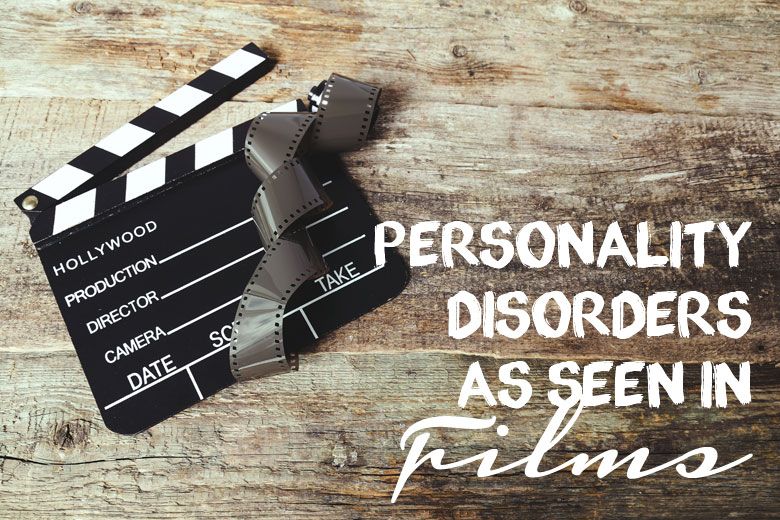A note from Tine: Welcome to another edition of Tim Talks! For those who are new to Beautyholics Anonymous, Tim Talks is a new series on the blog where my husband, Tim, will be sharing his knowledge to help raise mental health awareness. Tim is a psychiatrist who works in metro Melbourne. His area of interest is child, adolescent and youth psychiatry.

I have taken a brief break from Tim Talks towards the end of last year. I hope you have had a good break over the festive period to recharge for the new year. After writing up on personality development and ego defences last year, I wanted to see if we could delve into the realm of personality disorders, whilst taking a look at how some of these are portrayed on TV or the movies.
I’ll admit that this is a more controversial field, as there is still contention over whether someone’s personality or relational patterns can be classed as a disorder; personally I feel that if one’s personality attributes are causing significant difficulties in important aspects of their lives, it is equally important to address as if you had a depressive or anxiety disorder. There are some effective treatments for some of the personality disorders, I will have another write-up to go into some discussions around treatment at a later stage.
Hopefully this gets you thinking a bit about your own personality styles and also why you may struggle to relate with some of the people in your workplace or other networks because of their styles of interpersonal interactions.
Anti-social personality disorder (ASPD), doesn’t that imply people who don’t feel comfortable socializing or being in new social environments?
Interestingly a lot of people use the term ‘anti-social’ for when they don’t feel like being sociable, but when we are referring to personality disorders, it is used to describe people who do not adhere to the social rules or norms and have a strong tendency to manipulate and deceive others for their own needs or gain. These patterns of behaviour are usually identified from an early age, evidenced by school fights, breaking school rules and acts such as theft and lying. Another common feature is a higher level of impulsivity and risk-taking behaviour. They generally try to rationalize to justify their actions and behaviour and usually have a poor ability to empathize with their victims.
There appears to be differences in their physical make-up compared to the general population, whereby they generally have less changes in their blood pressure and heart rate in response to stress.
Movie Examples: There is quite a good representation of people with anti-social personality disorder within the film industry, such as American History X, Goodfellas, Sons of Anarchy and Training day, just to name a few.
Are people with ASPD psychopaths?
The term ‘psychopath’ gets thrown around a fair bit, it is still being debated whether psychopathy is a more severe form of ASPD or a completely different disorder. There is a psychopathy checklist (PCL) that is used in clinical practice to gauge the likelihood of someone fitting the construct of psychopathy. Flamed by the media, there has been a recent Austrian study that purports an association for people who drink black coffee to higher likelihood of psychopathic traits. It’s important to note that psychopathy is quite uncommon, and not to be alarmed the person next to you in the café decides to order a double shot espresso.
What is a psychopath?
Someone with psychopathy usually presents as quite superficially charming, but are generally emotionally shallow and have extremely limited ability to empathise. They usually have an inflated sense of their self-worth. Interestingly, there has been some evidence of a higher level of representation of people with psychopathic traits within the upper echelons of business or the corporate world, which makes you wonder if some of these features can be adaptive in a very competitive and hostile environment.
Movie Examples:I can never forget the portrayal of Hannibal Lecter in Silence of the Lambs, as well as Dexter Morgan in Dexter.
Borderline personality disorder (BPD), what is that?
I don’t think there is a lot of education and awareness about borderline personality disorder, and some of the features can be mistaken for other disorders such as bipolar disorder. The term ‘Borderline’ was used because it was thought, earlier on, that it falls somewhere in the spectrum between psychosis and neurosis. The areas of difficulty that people with BPD experience are related to their uncertain self-identity, mood fluctuations and heightened sensitivity to rejection, increased impulsivity and mistrust towards relationships. Many people with BPD also self-harm as a means to regulate their emotions, which can change from moment to moment. Unlike bipolar disorder, these mood states can change very rapidly and sometimes without any clear triggers, and not as persistently long as a discrete manic or depressive episode. We term the significant changes in mood as mood dysregulation.
Movie Examples:Films such as Fatal Attraction and Single White Female gives a dramatic representation of someone with BPD.
There are still a few more personality disorders that I want to talk about, and will do so in a Part 2 in the near future. I am interested to know what your thoughts are about these personality disorders, and also films that you have come across that are worth a mention for its portrayal of these disorders or other mental health matters.
Until the next time, I wish you good mental health.













This is such an interesting post! It really brings out awareness of personality disorders as well. I feel that film and tv often seem to highlight psychopaths especially in the crime and thriller genres.
Yip recently posted..What I’ve Learnt From Being A First Year University Student Twice
Tim: Hi Yip, glad you have found the post interesting, there are still quite a few more personality disorders that I wish to cover in another post. The media certainly tends to put the spotlight on psychopathy because it is in part a representation or perceived constitution of an evil individual. I don’t think it’s very useful to demonize them; a culture of fear is likely to deepen the confusion around these concepts of personality disorder.
I’m loving these posts Tim! Is it possible to add some tips on how to get the best out of people with these conditions, be it at social settings or at work.
Tim: Hi Yishan, glad you are finding these posts helpful. The approach I would consider when interacting with people with personality difficulties is to foster a relationship with clear boundaries and also to maintain consistent responses in your dealings with them. Boundaries such as consideration of individual personal space, being mutually respectful and what behaviour is not tolerated can be helpful reminders to them. Some people may feel the need to get over-involved in supporting them through crises, I think knowing one’s limitations and advising them to seek other external sources of support when appropriate can be more containing for them.
I love these posts! I suffer with mental health issues, and I find this information and cinematic references really beneficial. Thanks!
Karyn recently posted..Can ANYONE be a successful entrepreneur?
Tim: Hi Karyn, thanks for your comment and I am glad that found this post beneficial 🙂